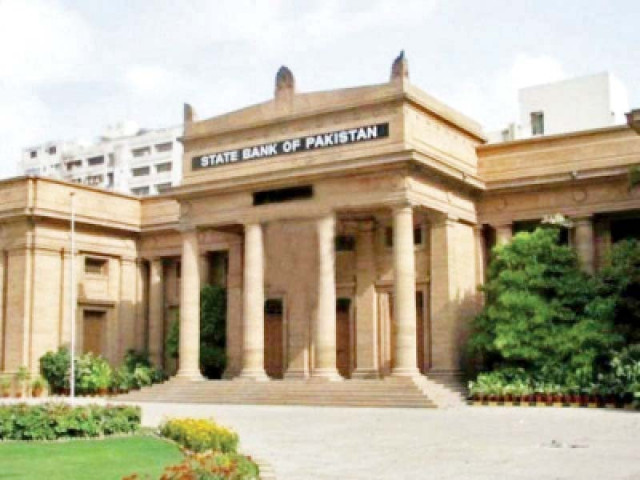SBP likely to leave rate on hold
Will wait for economy to stabilise before making next move

Pakistan’s central bank is scheduled to announce its key policy rate for the next seven weeks on upcoming Monday. A majority of pundits have developed consensus that the bank will leave the rate unchanged at 15% in order to wait for the stabilisation of economy.
However, a significant section of market participants did not rule out a reduction of 25-50 basis points, considering a fall in inflation reading to 23.2% in September compared to a 47-year high of 27.3% in the prior month. More importantly, new Finance Minister Ishaq Dar, who is following his old recipe of running a controlled economy, will like to see an easy monetary policy. The policy rate is a tool for the central bank to create a balance between inflation and economic growth.
The central bank increased the rate by a cumulative 800 basis points in 11 months (September 2021 to July 2022) to 15%. The bank maintained the rate in its previous monetary policy unveiled in August 2022. A further hike is apparently not an option in the minds of policymakers, which may prove to be disastrous. The economy has already contracted beyond the required level in the wake of devastating floods. Rising international oil prices, which have bounced back towards $100 per barrel this weekend, pose a serious threat to Pakistan’s economy.
They may keep the country’s import bill and inflation at higher levels. The surge in oil prices seems to be long-lasting following OPEC+ announcement of a notable reduction of 2 million barrels per day in oil output. Earlier, the price had slipped below $80 per barrel. Developments in the energy market may force the central bank to keep its benchmark interest rate unchanged. On the other hand, the reduction in inflation, drop in the twin trade and current account deficits and smart recovery of the rupee against the US dollar may make the case for a reduction in the policy rate.
“We expect no change in the key policy rate,” Pak-Kuwait Investment Company Head of Research Samiullah Tariq said while talking to The Express Tribune. “Inflation has dropped in September, but it still remains elevated,” he pointed out, adding that a fall below 20% in inflation reading may provide a solid basis to the central bank to consider cutting the rate over the next three to four months. Almost 70% of central banks around the world are maintaining interest rates on the higher side.
In the meantime, flood devastation is being evaluated in cooperation with the World Bank. “A clear picture will emerge soon, which will provide future direction to the central bank regarding the policy rate.” Tresmark, a treasury advisory firm, said in a commentary, “Though the entire market is expecting no change in Monday’s monetary policy statement (MPS), a slowdown in month-on-month inflation has prompted some analysts to talk about a 50-basis-point cut.” Arif Habib Limited economist Sana Tawfik said in a commentary, “We expect the SBP to keep the policy rate unchanged at 15%.” “Some 79.2% of respondents (in a survey conducted to take market feedback) are of the view that the SBP will leave the policy rate unchanged.” In the last MPS, the policy rate was also kept unchanged at 15%.
“The current pause of the MPC (monetary policy committee) has been dictated by the planned fiscal consolidation in FY23, recent developments in inflation that came in line with expectations, moderation of domestic demand, and improvement in the external position,” she said. JS Global Head of Research Amreen Soorani said, “We highlight a change in some views where now 40% of our sample base does not rule out a policy rate cut to be announced on Monday, who had previously been expecting monetary easing (from) the fourth quarter of FY23.”
The change in stance has been caused by the strategy adopted by the new finance minister who is prioritising inflation control. Recent events such as reduction in petroleum product prices in the country and delay in fuel cost adjustment in electricity bills have sparked expectations of a faster decline in monthly inflation as compared to the previous estimates, “making room for a rate cut this month and/ or next month.” The finance minister reduced the petroleum product prices by Rs7-17 per litre, which included lower ex-refinery prices and a lower petroleum development levy. Moreover, the fuel cost adjustment for September 2022 was put off, which supported the decline in September inflation.


















COMMENTS
Comments are moderated and generally will be posted if they are on-topic and not abusive.
For more information, please see our Comments FAQ